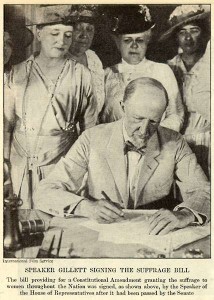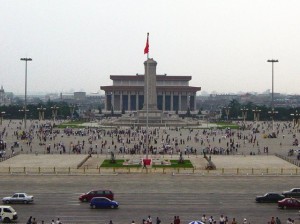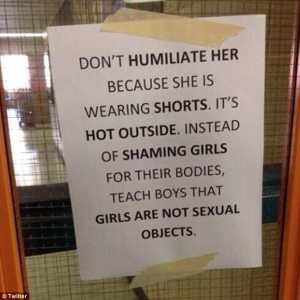![Governor Pat McCrory. By Hal Goodtree from Cary, North Carolina, USA (Pat McCrory) [CC-BY-2.0 (http://creativecommons.org/licenses/by/2.0)], via Wikimedia Commons](http://occupyworldwrites.org/wp-content/uploads/2014/05/512px-Pat_McCrory_July_2012-300x258.jpg)
Governor Pat McCrory. By Hal Goodtree from Cary, North Carolina, USA (Pat McCrory) [CC-BY-2.0 (http://creativecommons.org/licenses/by/2.0)], via Wikimedia Commons
On June 4, North Carolina Governor Pat McCrory signed the Energy Modernization Act. This law will allow drilling permits to be issued 61 days after the state Mining and Energy Commission approves the final rules, which is expected to happen by next summer. It also makes disclosing the chemicals used in fracking a crime. And, of course, the companies doing the fracking will be subsidized by North Carolina taxpayers. I discussed why the North Carolina law doesn’t make sense in a post from a couple weeks ago.

Fire boat response crews battle the blazing remnants of the offshore oil rig Deepwater Horizon. A Coast Guard MH-65C dolphin rescue helicopter and crew document the fire while searching for survivors. Multiple Coast Guard helicopters, planes and cutters responded to rescue the Deepwater Horizon’s 126 person crew. Photo courtesy US Coast Guard (public Domain) via Wikimedia Commons
On June 6, Louisiana Governor Bobby Jindal signed into law a bill aimed at killing a lawsuit filed by a New Orleans area regional levee board against 97 oil and gas companies over environmental damage to the wetlands caused by the companies. In a written statement, Jindal stated: “This bill will help stop frivolous lawsuits and create a more fair and predictable legal environment, and I am proud to sign it into law,” However, the Louisiana Attorney General and local parish officials are concerned that the law could negatively affect state and government claims against BP over the 2010 Gulf of Mexico oil spill.
Also on June 6, the Bismarck Tribune reported that U.S. railways are asking states to sign agreements saying that they won’t disclose details of volatile oil shipments to the public. Federal officials last month ordered the railroads to disclose the information to the states after the recent accidents in various states and Canada. The disclosures include route details, volumes of oil carried and emergency-response information for trains hauling 1 million gallons or more of crude. BNSF, Union Pacific and CSX are claiming the information is security sensitive and that releasing it could be competitively damaging. State officials, on the other hand, said that communities need to know about the trains and that an agreement would violate open-records laws.
As I was reading the Bismarck Tribune article, I noticed more energy news links at the bottom of the page. An oil spill of 700 barrels, another of 300 barrels and a salt brine spill have all happened in the last three days in North Dakota. While these spills might not sound large, the oil industry is notorious in underreporting the size of oil spills. Furthermore, these are only the reported spills; North Dakota’s also notorious for the number of oil spills that go unreported.
Isn’t it about time that we say no to letting the energy companies write our laws?


![By U.S. Air Force photo illustration by Airman 1st Class Kenna Jackson [Public domain], via Wikimedia Commons](http://occupyworldwrites.org/wp-content/uploads/2014/01/1024px-Woman_crying_in_bathroom-e1389934897799-192x300.jpg)







![Omar al-Bashir, the president of Sudan. By U.S. Navy photo by Mass Communication Specialist 2nd Class Jesse B. Awalt/Released) [Public domain], via Wikimedia Commons](http://occupyworldwrites.org/wp-content/uploads/2014/05/Omar_al-Bashir_12th_AU_Summit_090202-N-0506A-137-199x300.jpg)